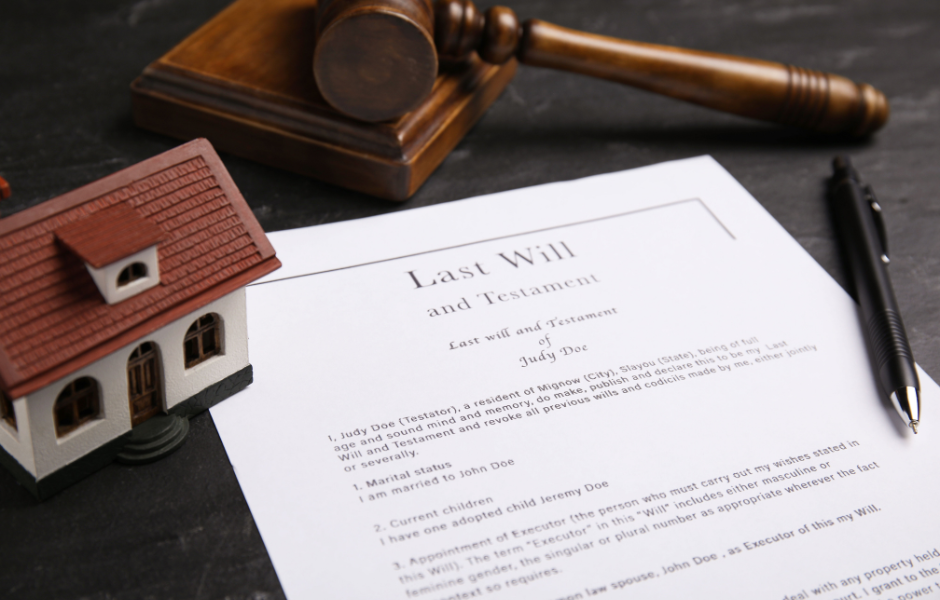I am a Hong Kong resident, should I apply the laws of the Mainland or Hong Kong to inherit my family's estate in the Mainland?
What is the difference and what are the potential risks? What do I need to know about cross-border inheritance?
Cross-border Inheritance in the Mainland and Hong Kong
More and more people residing or purchasing properties in the Mainland often encounter cross-border inheritance issues, and there are two common scenarios.
>After a Mainland resident passes away, he/she has left funds or stocks in a bank in Hong Kong, or he/she has real estate in Hong Kong, and these assets in Hong Kong need to be processed in Hong Kong for inheritance;
>If a Hong Kong resident passes away and leaves real estate or capital in a bank in the Mainland, his assets in the Mainland need to be inherited in the Mainland.
Application of Law: Who has the right of succession
The laws of Hong Kong and the Mainland are the same in determining the right of succession, i.e. the law of the place where the immovable property is situated applies to immovable property (e.g. real property), while the law of the place where the decedent's domicile is situated applies to movable property. In other words, if a Mainlander has left an estate in Hong Kong, the law of Hong Kong applies to the domicile of the heir to determine who has the right of succession to the estate in Hong Kong.
For cash and stocks in Hong Kong bank accounts, the law of the place of residence of the heir, i.e. the Mainland, will determine who has the right of succession.
If a Hong Kong resident has left an estate in the Mainland, the law of the Mainland will determine who has the right of succession in respect of the real estate in the Mainland, whereas the law of the place of residence of the decedent, i.e. the law of Hong Kong, will determine who has the right of succession in respect of the cash in bank accounts in the Mainland.
-Immovable property belongs to the place; movable property belongs to the person.
Q: What is the determination of "domicile" in the Civil Law?
A: Article 15 of the General Principles of Civil Law stipulates that: A citizen's domicile shall be the place of residence of his domicile, and if the place of habitual residence does not coincide with the domicile, the place of habitual residence shall be deemed to be the domicile.
According to the laws of Mainland China, the order of succession in Hong Kong and Mainland China is that the estate of the decedent shall be divided equally among the surviving first-order successors (spouse, parents and children), and if none of the first-order successors is alive, the surviving second-order successors (siblings, grandparents and grandparents) shall succeed to the decedent's estate.
Legal Order of Succession in the Mainland
According to Hong Kong law, if the decedent has a spouse or children, the parents have no right of succession; if there is both a spouse and children, the spouse receives a fixed amount (HK$500,000) and half of the remainder, and the other half of the remainder goes to the children in joint succession and is divided equally.
The biggest difference between Hong Kong and Mainland China is that the first order of successors under Mainland China's inheritance law includes parents, whereas Hong Kong's inheritance law is generally more favorable to spouses and not so favorable to parents. Inheritance Jurisdiction.
Hong Kong Estates of Mainland Residents
For estates left in Hong Kong by Mainland residents, application should be made to the High Court of Hong Kong for probate (in the case of testamentary succession) or for an administration order (in the case of legal succession or where there is a will but the will does not appoint an executor).
If the estate is immovable property such as real estate, the administrator will be determined in accordance with the laws of Hong Kong. If the estate is movable property such as bank deposits or stocks, the High Court of Hong Kong will determine the successor in accordance with the provisions of the laws of the Mainland and grant the right of administration of the estate to the person who has the right of inheritance. Such notarized documents need to be authenticated by the foreign affairs department authorized by the Ministry of Foreign Affairs of the PRC. After obtaining the High Court's authorization of probate, the administrator may, by virtue of the Court's order, contact various institutions such as banks to handle the procedures for distribution of the estate to the successors.
Mainland Estates of Hong Kong Residents
For immovable properties such as houses, Mainland laws are applicable. The decedent can go directly to the notary public department in the Mainland to apply for a notarization of inheritance, and needs to submit relevant data (proof of identity of the decedent, proof of relationship with the decedent, etc., which need to be notarized by a judicial notary public in Hong Kong and Taiwan) to prove that the decedent has the right of inheritance, and the notary public department of the Mainland will issue a certificate of inheritance upon receipt of the relevant data and confirmation of the decedent's right of inheritance. With the Certificate of Succession Rights, the legatee shall apply to the relevant authorities for the transfer of real estate (statutory succession and testamentary succession are exempted from Deed Tax, but bequests are not exempted from Deed Tax). In respect of estates of movable properties such as bank deposits left in the Mainland by residents of Hong Kong camping in the Mainland, Hong Kong law shall apply to determine the successor. You should apply to a Hong Kong notary public appointed by the Ministry of Justice for a notarization of declaration of succession rights (renunciation of succession rights), and then apply to a notary public in the Mainland for a notarization of succession rights, and then apply to a bank or other institution for the transfer of the estate to the heir with the notarization of succession rights. As the notary publics in the Mainland are not familiar with the procedures of applying Hong Kong laws, this process may be more complicated.
It is important to discuss the actual situation, the practical procedures and the relevant tax issues (Hong Kong status).
It is important to seek professional assistance.



